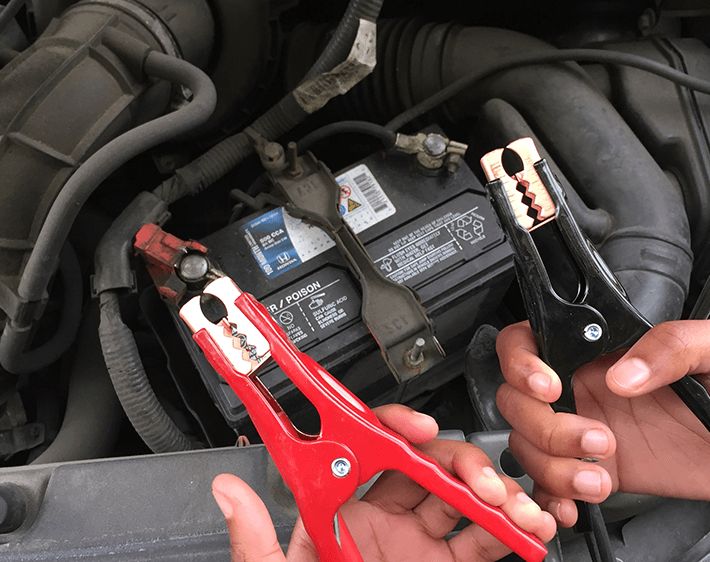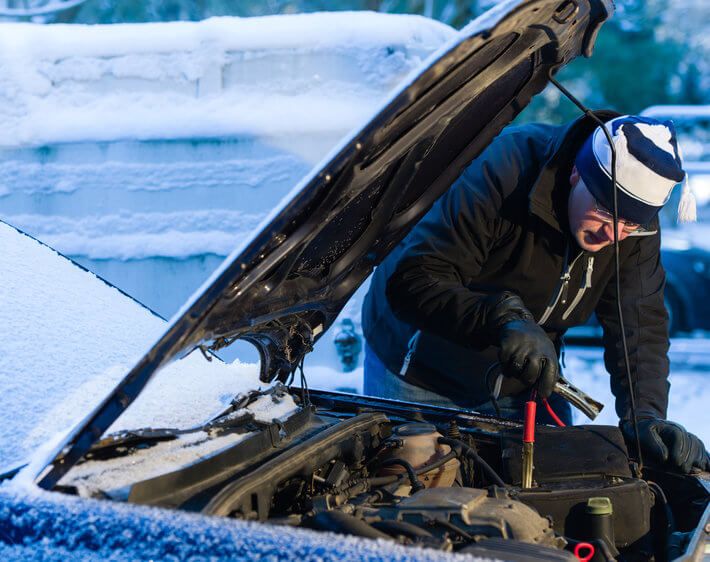Your car battery is the life force of your vehicle, providing the necessary power to start the engine and run various electrical components. However, like many other electrical devices, they can overheat, leading to potential damage.
Keep reading to explore the symptoms and risks associated with an overheating car battery. By understanding the signs and taking proactive measures, you can help ensure your safety, prevent damage, and potentially extend the lifespan of your car battery.
What Happens If a Car Battery Gets Too Hot?
When a car battery overheats, several issues can arise. Excessive heat can affect the battery's internal components, reduce its performance, and even cause irreparable damage. Additionally, an overheated battery poses safety risks, such as the potential for leakage, smoking, or even a fire hazard.
Car Battery Overheating Symptoms
Can a car battery overheat? — It sure can! To prevent an overheated car battery from causing further damage or becoming a safety hazard, it's crucial to recognize the symptoms early on. Here are some indicators of potential battery or electrical problems you should never ignore:
- The car battery is very hot to touch
- The battery light on your dash is illuminated
- Low battery fluid levels
- The battery case is swollen or bloated
- Grinding, buzzing, or clicking sound when turning the ignition on
- Slow cranking when starting the engine
- Dim headlights when idling
- Unusual electrical behavior like odd radio noises, flickering lights, overly bright lights
- The alternator overcharging the battery above the 14.9V
- The battery makes a hissing noise
- Visible fumes coming from the battery
- Car battery is hot and smells of rotten eggs
Potential Causes for Car Battery Overheating
Understanding the causes behind an overheating car battery can help you prevent the issue in the first place. Some common factors that contribute to battery overheating include:
Poor Battery Maintenance
Neglecting regular battery maintenance can increase the risk of overheating. Over time, corrosion and dirt can accumulate on the battery terminals and connections, leading to inefficient electrical flow. This resistance can cause the battery to work harder, resulting in excessive heat generation.
Overcharging
Continuously charging your battery beyond its recommended capacity can lead to overheating. Faulty voltage regulators or damaged charging systems are common culprits for overcharging.
High Electrical Load
When your vehicle's electrical demands exceed the battery's capacity, it can strain the battery and cause it to overheat. Running multiple accessories simultaneously or using power-intensive devices can contribute to this issue.
Extreme Weather Conditions
Extreme temperatures, both hot and cold, can affect the performance of your car battery. In high temperatures, excessive heat can accelerate chemical reactions within the battery and lead to overheating. Similarly, extreme cold can reduce the battery's capacity, causing it to work harder and generate more heat during operation.
Internal Short Circuits
Internal short circuits within the battery can generate excessive heat, resulting in overheating. These short circuits can occur due to damaged cells or internal battery faults.
Faulty Charging System
A faulty charging system — the alternator, voltage regulator, and related components — can cause your car battery to overheat. The alternator helps replenish the battery's charge while the vehicle is running. The voltage regulator maintains a steady voltage to the battery. If the alternator or regulator is not functioning properly, they may supply excessive voltage to the battery, causing overcharging and subsequent overheating.
Battery Age and Wear
As a battery ages, its ability to hold and deliver a charge begins to fade. This can lead to issues during normal operation. Monitor the age and condition of your battery regularly. .
How To Prevent Car Battery Heat Damage
While it's challenging to prevent heat-related car battery damage, there are several things you can do to potentially minimize it. To mitigate the risks associated with this issue, consider the following preventive measures:
1. Ensure Your Car's Cooling System Works Properly
If your vehicle's cooling system malfunctions, the underhood area may overheat. Coolant flows throughout your engine to keep things running cool. But, if you have a coolant leak or your radiator is not working properly, the engine will overheat and increase underhood temperatures.
Read our guide on common radiator problems to watch out for to discover when to take proactive measures to keep things cool under the hood.
2. Maintain Your Battery and Charging System
Keep your battery terminals clean from dirt and corrosion to prevent electrical flow issues and unintended battery drain. Many other things can drain a car battery, but conductive dirt accumulation is one of them.
It's also a good idea to check the performance of your charging system regularly. Check the battery voltage with the multimeter when the engine is running. If your alternator and the battery are in good shape, you should see a reading between about 13.9V and 14.8V. Anything higher than about 14.9V can cause overheating and damage to the battery. If you aren't sure how to perform this test, take your vehicle to your local Firestone Complete Auto Car, and our technicians will gladly do this for you.
3. Reduce Direct Heat Impact
Whenever possible, avoid long drives in the peak summer heat. If your car has an insulative barrier between the hood and the battery, ensure it's still in place. In addition, try to park in the shade to avoid direct sunlight overheating your battery.
4. Top-off Distilled Water When Needed
While most modern cars use sealed lead-acid batteries, some can still be topped-off with distilled water. Lead-acid batteries typically use diluted sulfuric acid with distilled water. So, if the water level is running low, adding some might prolong the battery's lifespan. Just remember to use distilled water. Regular tap water has metallic solids, which can cause short-circuiting within the battery's cells.
5. Replace The Battery If It's Damaged or Aged
If your battery is over four years old, you may need to replace it. Older car batteries are more prone to heat damage because the corrosion has likely started within its structure. However, if your battery shows visible signs of damage like case bloating or other kinds of deformation, you should replace it immediately.
Firestone Complete Auto Care experts can inspect your battery and recommend a suitable replacement. Thanks to their superior design, we install DieHard batteries, which can last significantly longer than most standard car batteries. DieHard's Stamped Grid Technology makes them nearly three times more corrosion-resistant.*
6. Avoid Short Trips Where Possible
Trips shorter than 20 minutes may not be long enough to recharge your battery fully. If you frequently make short trips, you may weaken your battery and increase the chances of overheating and premature battery failure.
Trust Firestone For Battery Assessment & Replacement
Don't let your battery go up in smoke! Take action to protect your vehicle and yourself. If you suspect an issue or notice any of the signs mentioned above, don't delay—seek professional assistance at Firestone Complete Auto Care. We'll do a thorough inspection to get to the root of the problem before providing any recommendations. Keep your battery cool and your drives worry-free by scheduling your battery test appointment today.


